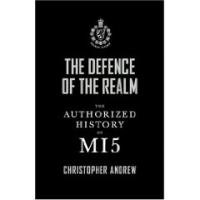Posted on January 18, 2010

The proposed declassification of some of the US security archives raises a number of questions about the value of increased access to classified state archives. First, what constitutes a 'legitimate' state secret and at what point should state secrets be declassified, and second, what do historians do with such data when they do have access to it?
I attended an interesting conference in Cambridge recently on 'The Political Life of Documents'. Two of the speakers - Christopher Andrew (History, Cambridge) and Peter Jackson (International Relations, Aberystwyth) specialised in historical research on state intelligence archives in the UK and France. Andrew is the author of a recent authorised history of MI5, the British military intelligence organisation, something I thought initially was a contradiction in terms because intelligence services are notoriously secretive.
But it seems that in some western countries, histories and other public comment on the role of intelligence agencies are being encouraged in new ways by the state (e.g. through processes like declassification of archives) not just as a step in making government seem more accountable and transparent, but as a way of improving intelligence services themselves. The CIA chief Sherman Kent for example campaigned in the 1950s for a better "literature of intelligence" to provide a formal mechanism for the transfer of knowledge and experiences between generations of analysts. Not all intelligence services take the same view, however, and if they do it does not often translate into a more open archive.
Why do archives of sensitive material even get created when a "word in the ear" would suffice? Peter Jackson suggested that because people have to justify taking certain decisions and actions, or feel they may have to in the future, they have a tendency to document them even when (perhaps particularly when) it implicates their political masters. In some countries, where ministers can be fired for taking poor decisions, I wonder whether this tendency to documentation is more marked than in others, where ministers stay in their posts if they have political protection. Formal documentation of sensitive decisions and actions may appear in the official record, in coded messages, or later in memoirs and interviews. It is also true that technological advances in signals intelligence make documentation of entire conversations much easier, and the necessity for formal documentation is reduced.
When under pressure from the public or in the interests of specific people, the state or its disaffected intelligence agents sometimes publicly release classified data. In the US there seems now to be a debate about what should be state secrets in a time of "open government", and therefore the rationale for classifying current security data is under review.

Would it help the public or historians to have access to classified data relating to past events? At the conference, Andrew made the point that intelligence archives have been widely neglected and misinterpreted by historians (except in accounts of the World Wars), even when those archives are open for consultation. He underlined the value of consulting intelligence archives, not just in understanding the back-story to major political events such as the Cuban missile crisis, but also as a window into understanding inter-governmental relations in peace time, government policy and more broadly, social relations.
Accessing intelligence archives relating to past events can thus be very valuable ways of learning from our mistakes (and successes), but one should not over-estimate their impact. To some extent, all archives are pale and distorted reflections of what actually goes on in the process of governance and social life, as historians well know. Classification and the official silencing or even destruction of records are just some of the most obvious ways in which access to content is controlled. Failure to document key decisions, loss or neglect of records, routine weeding and failure to correctly inventory materials are all deliberate or non-deliberate ways in which the archival record can be skewed and diminished, whether by politicians, bureaucrats or archivists.
The intelligence archives are not a magic bullet to understanding all of the last century of our history, as Peter Jackson pointed out - much of it is probably already in the public domain. However, exploring "classified" archives, debating access and declassification, may help us to reflect more closely on the political project of archiving, the balance between symbolic and bureaucratic commitments to documentation, and finally, the relationship between the operation of the state, its representation of itself in the archive (the "Paper State"), and public pressure for access to information.
Photo attribution: Marcin Wichary, http://www.flickr.com/photos/mwichary/2820911176/